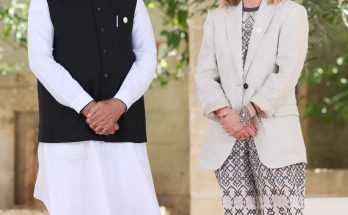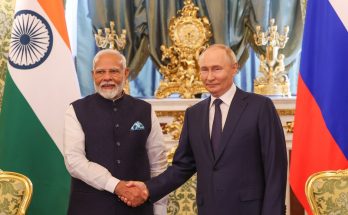
In an acknowledgement of India’s rising regional and global profile, the United Nations has invited India to help mediate between sworn adversaries, Israel and Palestine, to resolve their long-standing conflict that has been a major flashpoint in the Middle East.The UN “intends to engage India, a country with good relations to both the State of Palestine and Israel, in looking for ways how it could play a more proactive role in the settling of the question of Palestine,” a delegation of the world body said in a statement after talks with the government.
The members of the UN Committee on the Exercise of the Inalienable Rights of the Palestinian People had arrived in New Delhi on March 2 on a two-day visit. The team includes UN ambassadors and the committee members from Indonesia, Malaysia, Senegal (Chair), and Palestine (Observer). The UN delegation has urged India to enhance its political and diplomatic support to the Israel-Palestine peace talks for a peaceful solution to the conflict. It also asked India to help in capacity building of the Palestinian government institutions.

The discussions also focused on enhancing coordination between the UN and India for various projects in Palestine under the framework of South-South and Triangular Cooperation. The UN team was also expected to hold meetings with Union External Affairs Minister S. Jaishankar and other senior officials of the ministry, as well as political leaders, and think tanks.
Commenting on the UN’s intention to seek India’s mediation in promoting peace in the region, Manish Chand, Editor-in-Chief, India Writes Network said: “India has robust relations with both Palestine and Israel, which reflect New Delhi’s delicate diplomatic balancing act. This was exemplified in Prime Minister Narendra Modi’s visit to Israel and Palestine in 2017.” “By inviting India to mediate, the UN is acknowledging India’s leverage with not just Palestine and Israel, but also with all key players in the region. India can play a constructive and creative role in promoting lasting peace in West Asia,” he said.

On the Palestine issue, India has always maintained that both sides should hold direct talks to resolve their differences. In January, following US President Donald Trump’s announcement of a new peace plan for the Middle East, India had reiterated its call for a two-nation solution to the conflict. “We urge the parties to engage with each other, including on the recent proposals put forward by the United States, and find an acceptable two-state solution for peaceful coexistence,” Raveesh Kumar, the spokesperson of India’s external affairs ministry, had said in a statement.According to the new US proposal, Jerusalem would remain as Israel’s undivided capital, among other suggestions offered. President Trump had described the plan as “realistic, historic, and a giant step towards peace”.
(Sanjeeb Baruah contributed inputs for this article)
Author Profile
- India Writes Network (www.indiawrites.org) is an emerging think tank and a media-publishing company focused on international affairs & the India Story. Centre for Global India Insights is the research arm of India Writes Network. To subscribe to India and the World, write to editor@indiawrites.org. A venture of TGII Media Private Limited, a leading media, publishing and consultancy company, IWN has carved a niche for balanced and exhaustive reporting and analysis of international affairs. Eminent personalities, politicians, diplomats, authors, strategy gurus and news-makers have contributed to India Writes Network, as also “India and the World,” a magazine focused on global affairs.
Latest entries
 In ConversationJuly 26, 2024India-Italy defence collaboration can extend to third countries: Anil Wadhwa
In ConversationJuly 26, 2024India-Italy defence collaboration can extend to third countries: Anil Wadhwa In ConversationJuly 23, 2024Italy views India as a key partner in Indo-Pacific: Vani Rao
In ConversationJuly 23, 2024Italy views India as a key partner in Indo-Pacific: Vani Rao DiplomacyJune 29, 2024First BRICS unveils a roadmap for boosting tourism among emerging economies
DiplomacyJune 29, 2024First BRICS unveils a roadmap for boosting tourism among emerging economies India and the WorldJune 11, 2024On Day 1, Jaishankar focuses on resolving standoff with China
India and the WorldJune 11, 2024On Day 1, Jaishankar focuses on resolving standoff with China






